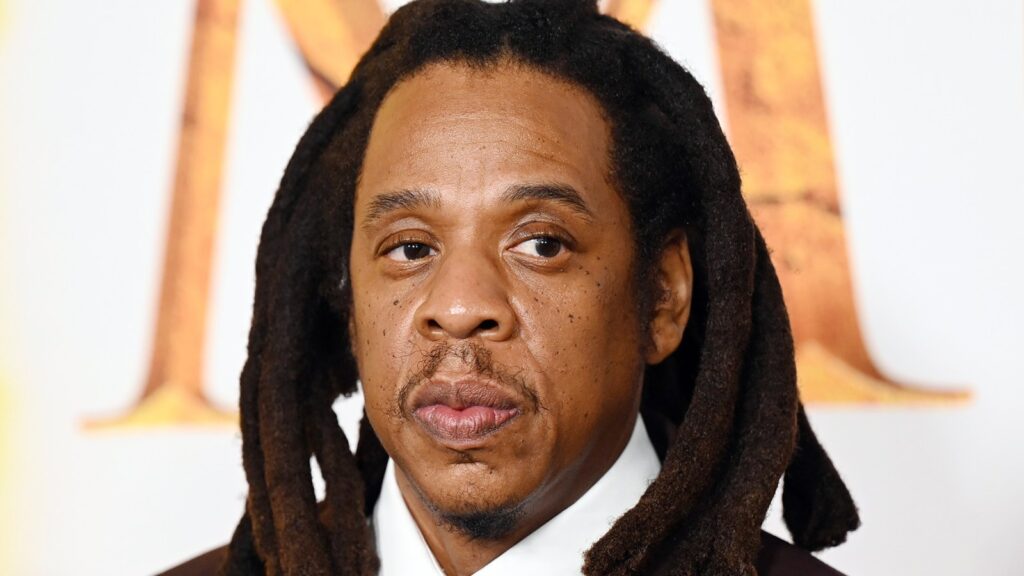A California judge has dismissed Jay-Z’s extortion and defamation lawsuit against Texas lawyer Tony Buzbee, marking a pivotal moment in a high-profile legal battle. In a comprehensive 65-page ruling issued on Monday, Los Angeles County Judge Mark Epstein expressed reservations about his decision, acknowledging the complexity of the case and indicating that he would await the Court of Appeal’s input to determine the correctness of his ruling. He concluded his decision with the phrase, “stay tuned.”
The lawsuit, filed by Jay-Z, whose real name is Shawn Carter, accused Buzbee of knowingly spreading false allegations. The claims stemmed from a lawsuit filed by Buzbee on behalf of a Jane Doe, alleging that Carter and Sean “Diddy” Combs were involved in the rape of a 13-year-old girl at a New York party 25 years ago. Carter contended that Buzbee attempted to extort him by sending demand letters in November, threatening to name him in the lawsuit if he did not agree to a secret settlement.
Legal Arguments and Judge’s Ruling
Judge Epstein’s ruling delved into the legal nuances of extortion and defamation. He noted that while the alleged conduct involved criminal activity, the defendants did not explicitly threaten to involve law enforcement unless Carter paid. According to Epstein, “Selling silence as to law enforcement for money is extortion, but there is no promise of silence in the criminal context here. And selling silence for money in the civil context is not extortion; it is a settlement with a non-disclosure element.”
Alex Spiro, Carter’s lawyer, expressed disappointment with the ruling, stating it hinged on a misapplication of California law regarding the admissibility of certain statements. Spiro emphasized that the judge’s decision might have been different if specific evidence had been considered, which purportedly demonstrated Carter’s innocence and Buzbee’s awareness of the falsehoods.
“What does it say about our justice system if someone can knowingly bring about completely false claims of the most heinous nature imaginable against an innocent individual and get away with it on a technicality?” Spiro remarked.
The Battle Over Evidence
The case took a dramatic turn earlier this year when new evidence emerged. This included a recorded conversation between private investigators and Jane Doe, suggesting that Buzbee had pressured her into implicating Jay-Z. The recording, however, was contested by Buzbee’s legal team, who questioned its admissibility and relevance.
Judge Epstein reviewed the recording but found it inconclusive. He noted that Doe appeared to align with the investigators’ suggestions, possibly to avoid legal repercussions or media exposure. Despite this, Epstein acknowledged that the situation could change significantly if the investigators’ declarations were admissible, potentially altering the case’s trajectory.
Implications and Next Steps
The dismissal of Jay-Z’s lawsuit against Buzbee raises significant questions about the balance between legal strategy and ethical conduct. Carter plans to appeal the decision, seeking to overturn the ruling and continue his fight against what he perceives as a grave injustice.
Meanwhile, Buzbee celebrated the dismissal as a victory, asserting the case was without merit and indicating plans to seek attorneys’ fees against Carter for what he termed a legally flawed lawsuit.
“Yet another huge win!!” Buzbee proclaimed on social media. “John Doe’s case against me and The Buzbee Law Firm alleging extortion and defamation was thrown out by the court.”
Broader Context and Ongoing Legal Battles
This legal saga unfolds against the backdrop of ongoing allegations against Sean Combs, who is currently facing trial on charges of sex trafficking, racketeering conspiracy, and related offenses. Combs, who denies any wrongdoing, faces potential sentences of 15 years to life if convicted. The case has drawn significant media attention, highlighting the complex interplay of celebrity, legal maneuvering, and public perception.
For Jay-Z, the dismissal of his lawsuit is a setback in his efforts to clear his name. He has filed a separate defamation lawsuit against Jane Doe in Alabama, accusing her and Buzbee of conspiring to extort him with fabricated claims. In a sworn statement, Carter described the ordeal as an “existential threat,” causing him significant distress over the potential damage to his reputation and personal life.
As the legal proceedings continue, the case underscores the challenges faced by high-profile individuals in defending against allegations and the intricate dynamics of the justice system in handling such disputes.
About The Author
 Hellmann’s Mayonnaise Unveils Art Gallery Pop-Up with Kareem Rahma
Hellmann’s Mayonnaise Unveils Art Gallery Pop-Up with Kareem Rahma Deadly Fire at Indian Pharma Factory Claims 39 Lives, Sparks Investigation
Deadly Fire at Indian Pharma Factory Claims 39 Lives, Sparks Investigation Love Island USA’s Secret Code: Decoding Cierra and Nic’s “Journey”
Love Island USA’s Secret Code: Decoding Cierra and Nic’s “Journey” Tragic Fire at Indian Pharmaceutical Plant Claims 39 Lives
Tragic Fire at Indian Pharmaceutical Plant Claims 39 Lives Katy Perry’s Concert Drama: Trapped in Metal Sphere Mid-Performance
Katy Perry’s Concert Drama: Trapped in Metal Sphere Mid-Performance